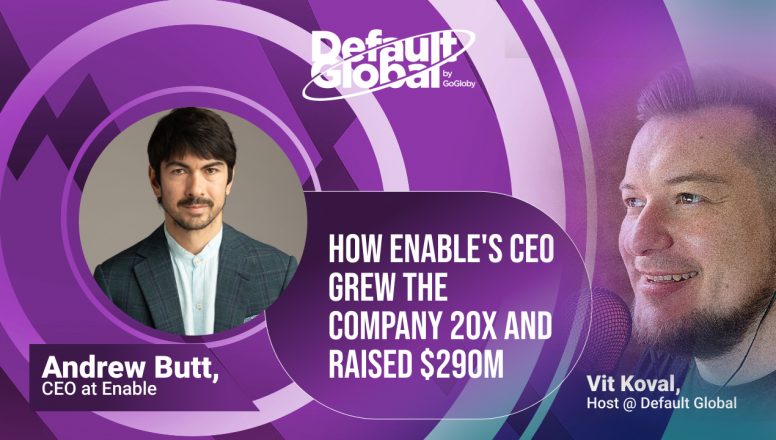Meet Kaleem Clarkson, COO at Blend Me, Inc:
Kaleem Clarkson, COO at Blend Me, Inc, is a dynamic tech leader whose journey reflects the changing landscape of global hiring and remote work. Originating from Maine, he moved to Georgia and had an epiphany at DrupalCon Denver in 2012 when he saw how a company built a virtual-first culture. This led him to co-found an HR consultancy for remote companies in 2013, which eventually became Blend Me, Inc. Kaleem’s story encapsulates the evolution of work dynamics, emphasizing employee engagement and the power of remote work. Join us as he shares his insights in our Default Global podcast.
Listen Up: Kaleem Clarkson, COO at Blend Me, Inc — Full Podcast Episode on Spotify
Watch Now: Vit’s In-Depth Talk with Kaleem Clarkson
Quick Read: Kaleem Clarkson, COO at Blend Me, Inc, Interview Highlights
Career Journey and Insights from Remote Work Advocate, Kaleem Clarkson
In a recent episode of Default Global, I had the pleasure of interviewing Kaleem Clarkson, a remote work expert and the CEO at Blend Me. Kaleem shared insightful experiences that fuelled his passion for remote work and the global workforce, including his transition from a small U.S town to Atlanta, Georgia.
He stated, “The first time we did this, and we’re talking about 2007 or eight, I just remember having this feeling of, wow, wouldn’t it be great to come home every summer and stay with the families for the whole summer?”
This sparked the idea of a location-independent job and led to the foundation of his HR consultancy firm for remote companies.
Understanding Different Models of Remote Work
In our discussion about Blend Me, Kaleem emphasized the importance of understanding the difference between various models of remote work. He outlined three types of remote work models: fully distributed, hybrid remote, and telecommute, explaining how each model has evolved based on changing employee and employer expectations.
However, he warned that hybrid remote work, where some employees work and commute to the office while others work remotely, is the most challenging model.
“When you have meetings, like the people on site in the conference room on a camera, and then the people on Zoom, there’s always an A team and there’s always a B team,” he cautioned.
Trust in Remote Work
Trust was a recurring theme in our conversation. Kaleem emphasised that for remote work to be successful, it must be rooted in trust between the employer and the employee. Both parties must trust that the other will fulfill their obligations. This two-way street of responsibility is crucial for a smooth remote work experience.
Return to the Office: A Phase or a Permanent Shift?
In light of recent trends where big names in technology and finance are calling employees back to the office, I asked Kaleem if he thought this was just a phase or a return to the old office routine. He suggested that while some companies might use hybrid work as a bridge to revert to full office work, others might lean into it and find successful ways to implement it. However, he stressed the importance of collecting data and allowing employees to be part of the conversation.
Overcoming Isolation in Remote Work
Kaleem also addressed the common struggle of isolation in remote work. He suggested that companies should develop a social connection strategy addressing professional, lifestyle, and intimate connections. By providing opportunities for employees to build these connections, companies can help alleviate feelings of isolation and loneliness.
Key Advice for Entrepreneurs and Executives New to Remote Work
Finally, Kaleem offered three key pieces of advice for entrepreneurs and executives new to remote work: Decide what’s important to you as a founder, determine your financial priorities, and consider how you want your organization to be known. He stressed the importance of laying the groundwork before making any decisions about remote work models.
In conclusion, Kaleem’s insights and experiences offer a valuable perspective on the dynamics of remote work and the key factors that contribute to its success. As the landscape of work continues to evolve, his advice will undoubtedly be beneficial for entrepreneurs and executives navigating the world of remote work.






